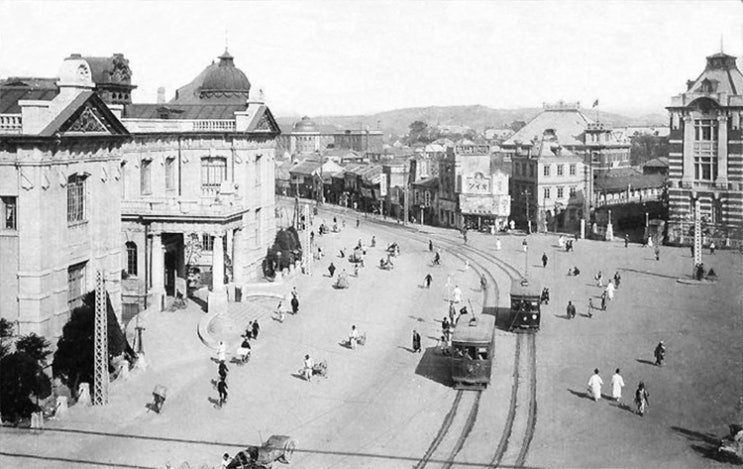“August 15, 1945. Korea was quiet.”
On Liberation Day, there were no cheers or parades. No flags waved proudly in the air. Instead, an unusual silence filled the streets of Gyeongseong (today's Seoul), as people struggled to comprehend that after 35 years under Japanese colonial rule, they were finally free.
At exactly noon, radios across the peninsula crackled to life. The voice of the Japanese Emperor filled homes and shops, announcing Japan's unconditional surrender—but in archaic language that few could understand. Many Koreans didn't even realize liberation had arrived. Confusion overshadowed celebration, and cautious whispers replaced joyful cries.
Liberation Came Quietly
For Koreans, freedom had been an impossible dream for decades. On this historic day, many hesitated to believe it was truly happening. Japanese soldiers and policemen were still patrolling the streets, watching closely for any signs of resistance. The atmosphere was tense and uncertain.
It wasn't until the next day, August 16, that the silence finally broke. Crowds formed around Seodaemun Prison, anxiously awaiting the release of political prisoners and freedom fighters who had been imprisoned for years. Families reunited with tears and relief, turning their emotions into powerful chants:
“대한 독립 만세!” (Long Live Korean Independence!)

"On August 16, 1945, crowds gather outside Seodaemun Prison to welcome political prisoners and freedom fighters after Korea’s liberation."
Soon, thousands were marching from Seodaemun through Gwanghwamun, Jongno, and Namdaemun, reclaiming their streets, voices, and country.

The Role of Yeo Un-hyeong: Negotiating Liberation
In the critical moments surrounding liberation, one leader emerged prominently: Yeo Un-hyeong (여운형). Known for his wisdom and respected as a unifying figure, Yeo was approached by the collapsing Japanese colonial authorities. They feared violent revenge from Koreans and sought Yeo's help to maintain order.

"Independence leader Yeo Un-hyeong giving a historic speech at Huimoon Middle School in Seoul after negotiating terms with the Japanese colonial government."
With incredible strategic foresight, Yeo secured five crucial conditions from the Japanese authorities in exchange for ensuring their safety:
- Immediate release of political prisoners.
-
Guaranteed supply of food to prevent starvation and chaos.
-
Freedom for Koreans to organize politically.
-
Non-interference with youth organizations.
-
Non-interference with labor and farming groups.
His swift action helped prevent immediate bloodshed and laid the foundation for the establishment of the Korean Preparatory Committee, a key stepping stone towards rebuilding a sovereign Korea.
Hope Interrupted by Chaos
Yet, the period of calm was short-lived. The lingering Japanese military presence, confused and angry at their sudden defeat, tried to reassert control over the capital. Soldiers seized the broadcasting station and reoccupied city streets, creating panic.
Simultaneously, banks witnessed frantic withdrawals by Japanese citizens preparing to leave Korea, pushing the economy into crisis. The Japanese government began recklessly printing money, triggering severe hyperinflation. Prices soared by more than twenty times within weeks, plunging the newly liberated nation into economic turmoil.

Remembering Liberation Completely
At KORELIMITED, we believe it's important to tell the full story of liberation. We celebrate August 15, but we also honor the uncertain moments that followed—the silence, the confusion, the sacrifices of leaders like Yeo Un-hyeong, and the ordinary people who carried Korea through chaos and tragedy into a new era of hope.
Because true liberation isn't defined only by a single day. It unfolds through courage, perseverance, and the quiet determination to move forward, no matter how uncertain the future may seem.


Leave a comment